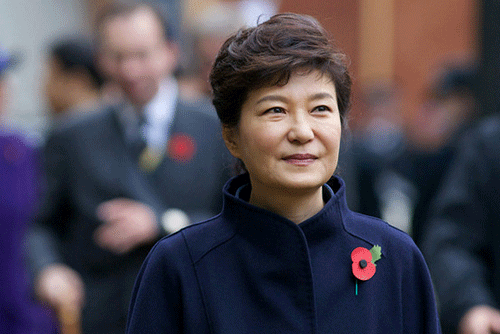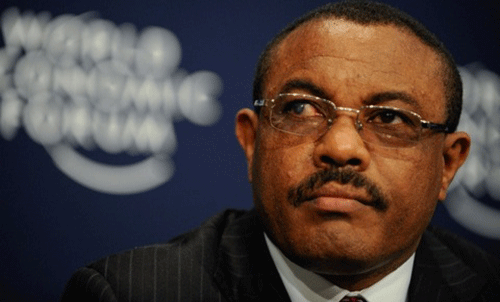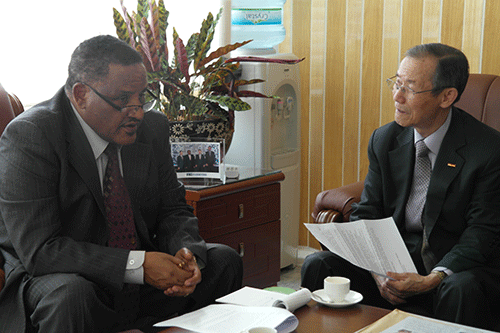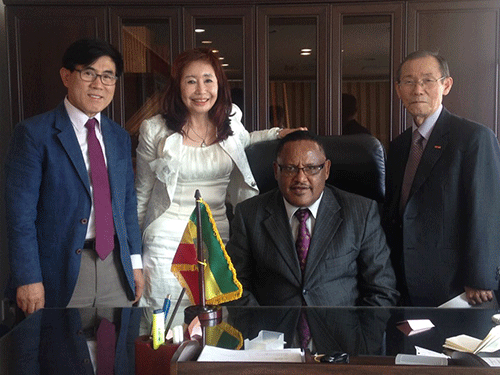Interview with Ambassador Shieferaw Jarso of Ethiopia
President Park Geun-hye of the Republic of Korea makes an official state visit to the Federal Democratic Republic of Ethiopia on May 25-28, 2016. To learn more about the country and various aspects of Ethiopia, The Korea Post recently interviewed Ambassador Shieferaw Jarso of Ethiopia in Seoul for full details of the country as well as Prime Minister Hailemariam Desalegn of Ethiopia. The following are details of the interview-Ed.

Question: What are the important developments scheduled between Korea and your country, including the possible visit of your Head of Government to Korea?
Answer: As to be recalled, our President H.E. Dr. Mulatu Teshome had a working visit to Korea in April 2015. During his visit, he met with the President of the Republic of Korea H.E. Mme. Park Geun-hye and held discussion on various issues of mutual interest.
This year at the end of May 2016, H.E Mme. Park Geun-hye will pay an official visit to Ethiopia. We are currently working on this visit. More than 100 business communities and heads of different institutions are expected to accompany the President. Many bilateral agreements will be signed during the visit. This kind of exchange of visits by Heads of States will further enhance the government-to-government and people-to-people relationship.
Q: Please introduce your Head of Government in detail, including major achievements?
A: The Federal Democratic Republic of Ethiopia (FDRE) has Federal Republic Government type. FDRE has nine regional states and two autonomous cities. On the Executive Branch, Head of State is President Dr. Mulatu Teshome, Head of Government is Prime Minister Hailemariam Desalegn. The cabinet includes Council of Ministers selected by the Prime Minister and approved by the House of People's Representatives.
The Legislative branch is a bicameral Parliament consists of the House of Federation (or upper chamber responsible for interpreting the constitution and federal-regional issues) (108 seats; members chosen by state assemblies to serve five-year terms) and the House of People's Representatives (or lower chamber responsible for passing legislation) (547 seats; members directly elected by popular vote from single-member districts to serve five-year terms).
Today, Ethiopia is in a dynamic process of transformation. The building of institutions of democracy, good governance and the rule of law is further deepening and gaining strength. Ethiopia’s economy is among the top 10 fastest growing economies in the world in 2015. Its GDP has been growing at an average growth rate of 11% annually for the last eleven consecutive years. The government has exerting its utmost efforts to assure the sustainability of the growth.

Q: What is the volume of bilateral trade, its outlook in the next 12 months?
A: Actually, the trade volume has been increasing through time. The total trade value has reached about 168.8 million USD in 2015. There might be some 10 percent increments in 2016. The main concern, however, is about the trade gap. It is highly in favor of Korea and the gap is very huge. I think we should narrow the gap and minimize the trade deficit by exporting diversified items.
Q: What are your competitive field of industry and products attractive to Korean and what are Korean products that your country might wish to import?
A: The competitive area is a manufacturing sector. It plays an important role in the economy by supplying consumer goods, generating employment opportunities, absorbing agricultural raw materials and earning foreign exchange through exports. To help the manufacturing sector to grow, the Government is making concerted efforts to provide wide range of incentives and to dismantle barriers to investment and private sector participation. The Government is also encouraging the expansion of labor intensive industries to create more job opportunities as part of its commitment to human resources. So far Ethiopia’s major export item to Korea is coffee. We also want to enter in the market of sesame, natural honey, fruits and vegetables, cut flowers and oilseeds and spices. On the other hand, Korea mainly exports machinery, electronic materials, pharmaceutical products and chemical and chemical products from Korea.
Q: What are the areas in your country where you want Korean companies to invest and what are the areas where you wish your business to invest in Korea?
A: Investors can invest in the areas of their interest. The identified priority areas, however, are agro-processing, food and beverage, textile, leather and pharmaceutical industries. We also want to jointly work on green energy, technology transfer, on scientific and educational sectors and information and communication technologies Koreans will be also encouraged to pursue a strategy of establishing joint venture and public- private partnerships.

Q: What are the attractive tourist destinations of your country?
A: The country is endowed with the vast array tourism resources, in the form of cultural, historical, archaeological and natural attraction areas.. Ethiopia has immense Ecotourism resources including both Natural and Cultural attractions. Ecotourism represents an approach to tourism that emphasizes on environmental and cultural preservation. I hope this fulfills Korean interest as their preference is oriented with green tourism. In general, Ethiopia offers unspoiled products and authentic experience to international visitors.
Q: Please introduce yourself in detail, including your career, family and hobbies?
A: I am the new Ambassador of the Federal Democratic Republic of Ethiopia to the Republic of Korea. I officially started my duty in last March, 2016. Before this position, I have served as a Minister for more than 20 years.
My educational background is engineering with special emphasis on Water Engineering. I have one son and three daughters. I live here in Seoul with my wife and two daughters.
Q: What is your view of Korea and the Korean people before and after your arrival here?
A: Likely, I was familiar with Korea. But it is by reading. I have read many books about Korea to know the socio-economic situation of the country and culture and cultural values of the people. The historical relationship is the other pushing factor to know about the country.
Furthermore, the similarities of the economic strategies of the Korea and Ethiopia had an influence on me. Both have an export-driven development policy.
By the way, Ethiopia considers South Korea as an important model for its economic development and social transformation. After my arrival, I started enjoying the result of the struggle. As Koreans proudly say, it is really a ‘Miracle on the Han River.’ Everything is fascinating.
Q: Any important details on Ethiopia other than those covered above?
A: Ethiopia has recently launched the second five-year Growth and Transformation Plan (GTP). The plan once again forecasts rapid growth across all sectors and envisions Ethiopia to be one of the fastest tracks to becoming a middle income country by 2025. It envisages doubling of the GDP in the years as well as huge expansion of infrastructure, including power, telecommunications, roads and new railway lines. So we need overseas cooperation to realize this ambitious plan and we expect more from Korea as we have historical and long-standing relationship.


